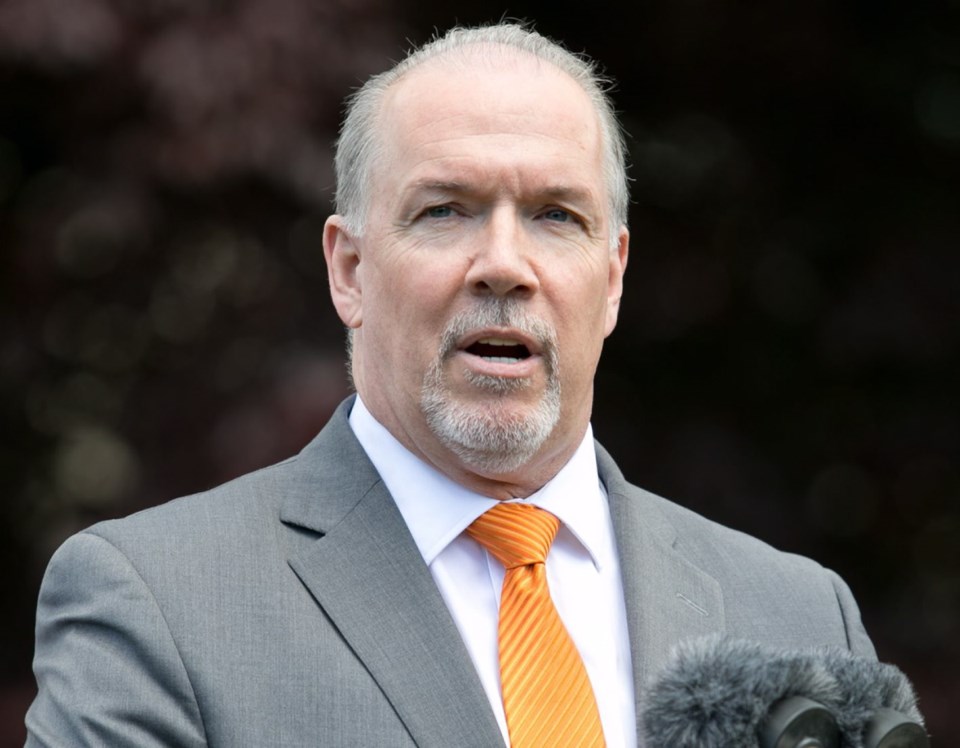 Ten bucks a day for child care is an enormously appealing proposition for thousands of B.C. families now paying 10 times that or more for it.
Ten bucks a day for child care is an enormously appealing proposition for thousands of B.C. families now paying 10 times that or more for it.
But making it available to the wealthy as well as low-income earners might be one of the sticking points for the major election campaign statement NDP Leader John Horgan made last week.
He served notice the Opposition will be campaigning for a $10-a-day child-care program that is universally available. It’s the most definitive position yet on a topic that the NDP has taken varying positions on over the years. In fact, it’s the most definitive statement Horgan has made as leader in terms of what the party will be advancing as the election campaign begins to take shape.
The idea goes back to a concept that was just taking shape in the final days of the last NDP government, in 2001. Former premier Ujjal Dosanjh pitched a $14-a-day program that would have more than doubled the existing subsidy budget, to $400 million a year, with a federal contribution folded in. It didn’t swing the subsequent election results. The NDP were routed. The B.C. Liberals cancelled the plan in short order, keying on the waste of money represented by universality.
Horgan said last week the 15 years of Liberal government since then have created a child-care crisis. Parents are paying some of the highest fees in the country and child care is the second-highest cost to families, after housing. Apart from the obvious popularity in the young-families demographic, he cited the economic impact as another selling point.
“Lack of affordable quality child care prevents parents from participating in the labour force.” Various studies cite the high costs as a drag on the economy.
The cost hits home personally, as well. Victoria’s Erin Skillen said Monday her eldest just started kindergarten, but her family spent several years before that paying $1,600 a month for four-day-a-week child care for two children. “Financially, it doesn’t make sense to work,” she said. Skillen persevered for career reasons, but said families like hers are hindered by massive costs.
“Seniors say: ‘Why I should pay for your child care, when nobody paid for mine?’ But things have changed so much. It’s a huge burden.”
Her family doesn’t qualify for the subsidies now available and pays the full cost.
She was delighted to hear the idea of $10-a-day care. “It could be a massive benefit.”
Massive benefits carry massive price tags. Advocates who have been lobbying for the idea say the cost is all returned through productivity gains. But those are abstract gains that are hard to quantify.
In the here and now, the government spends $120 million a year on subsidies to eligible low-income earners to help with child-care costs. It covers about 20,000 children living in families making less than about $55,000 a year. It can run as high as $750 a month per child.
There’s a widespread view that it’s simply not enough. Eligibility as measured by family income is too low and leaves too many middle-income earners exposed to huge monthly bills.
But doing away with an income test, as the NDP plan pledges, brings its own problems. It hikes the cost of the program and guarantees that money goes to some parents who don’t need it.
There’s a middle ground somewhere between the current income level and a much higher one that would address most of the need without simply wasting money.
NDP early-childhood-development critic Maurine Karagianis said universality was adopted in the promise because the affordability divide varies greatly all over B.C., depending on housing costs.
The working estimate for universal $10-a-day care is $1.5 billion, or more than seven times what the government spends now.
There’s one qualification in Horgan’s promise. He’s going to “work toward” it. Karagianis said that means incremental improvements over a few years, starting with infant-toddler care.
If nothing else, the promise will be a goad to the B.C. Liberals to do better.



